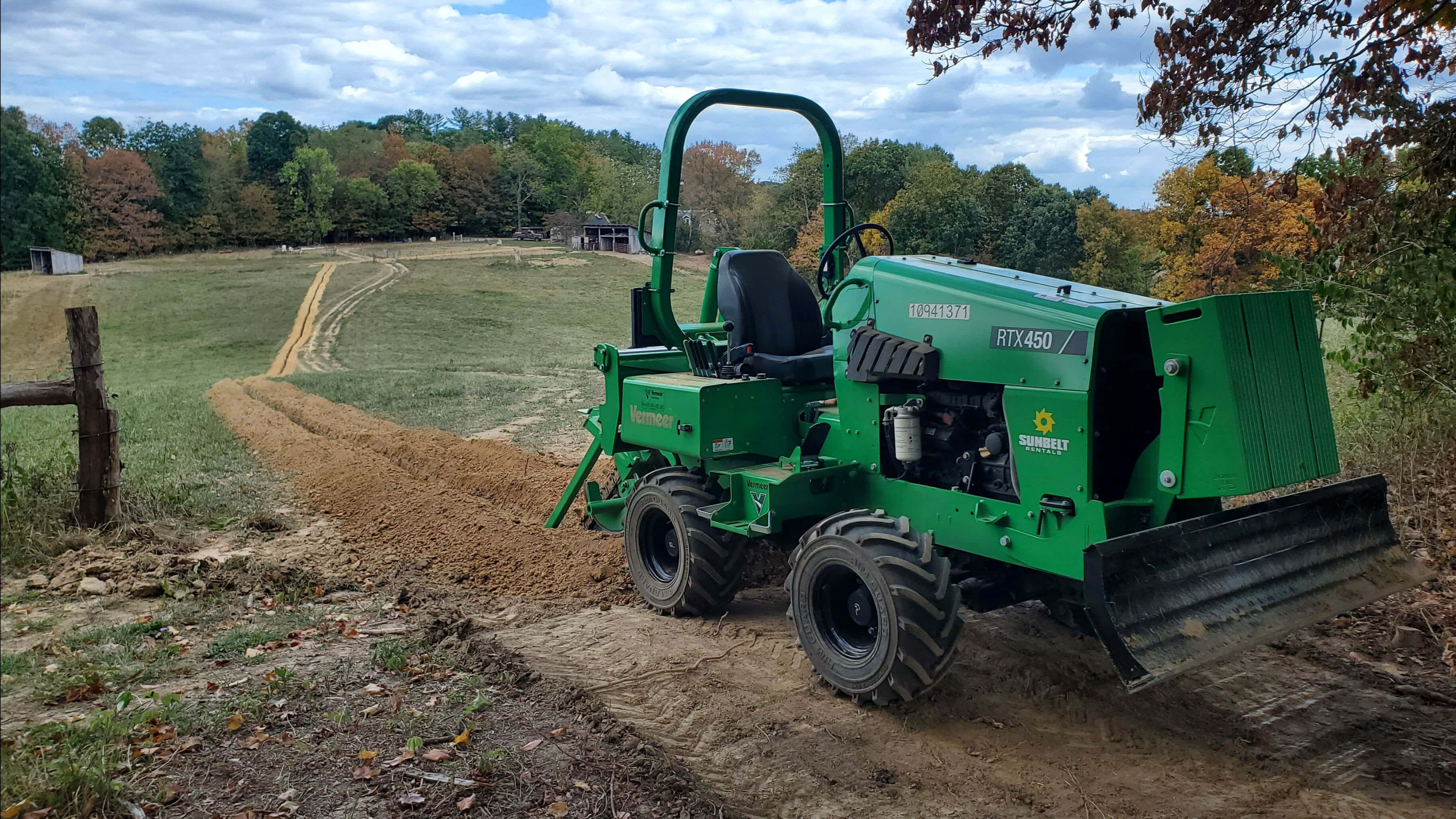Let the Waters Flow
posted on
December 5, 2024
"Thousands have lived without love, not one without water." - W. H. Auden

If you’ve been following us for a time, you know that we’ve been hauling water with the tractor to the cattle herd for four years. Four years of filling a huge tank on a trailer with the garden hose for 75 minutes, then hauling it to wherever the herd is grazing and filling 5 or 6 stock tanks. Then doing it again the next day. And the next day.
This is why we are SO STOKED to share that our water system is complete! CJ spent the last two months trenching in 4,500 feet of waterline, installing summer water points along the line, pouring concrete and anchoring in 4 frost-free waterers, and moving tons of gravel. After seeking several expensive quotes from contractors, CJ decided to install everything by himself. Having never done it before!


Farming requires the right infrastructure. Livestock operations require fencing, a water system, a way to safely and humanely handle the animals, a barn or natural windbreak for them to take shelter, and more. As beginning farmers, we have spent these startup years figuring out what kind of infrastructure we need and how to fund it. This is one reason so many farms take years to support one person’s livelihood, yet alone multiple. All of the profits from our farm business have gone back into the business in the form of capital investments each year.
Luckily for us, conservation programs through the USDA’s Natural Resources Conservation Service (NRCS) provide cost-share support for many of the practices we aim to implement. When Molly started the farm in 2020, she reached out to NRCS and applied to one such program, the Environmental Quality Incentives Program, for a water system, improved fencing, and a gravel feed pad. After three years of applying, we were accepted and able to install these major pieces of infrastructure this year.


We are grateful to Joe Weber at our local NRCS office for supporting us in this conservation contract. Instead of burning diesel to move water around, we can now walk out into the pastures and plug a tank into the line or move the herd to a permanent waterer. This is one example of our tax dollars being put to good use — supporting farmers in implementing conservation practices that benefit us all!





